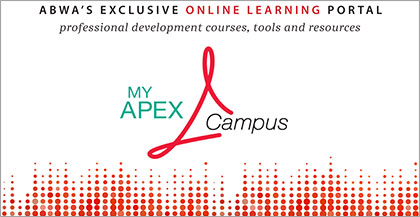
by American Business Women's Association | Mar 24, 2019 | Blog
Written by Executive Leadership Coach, Denise Louise Jeffrey
Whether pushing for promotion, bargaining for extra budget or trying to convince a client to get on board, negotiation is a necessary part of business life. Most of us aren’t born with this skill, but it’s well worth taking the time to conquer for the benefits that it can bring – from forging better business relationships to reaping great rewards… whatever they may look like for you. With insight from Executive and Leadership Coach Denise Louise Jeffrey, here’s how to influence your way to great negotiations and seal the deal:
BE PREPARED…
One of the most important things to do when negotiating, is to put in the groundwork before anything begins. A common combination, and a vain one at that, is to be overconfident but under-prepared. Always take time to put the research in, and make sure you know what you’re getting yourself into. If you know who you’re meeting, carry out some background research, perhaps familiarizing yourself with their role and career trajectory. Also educate yourself on the project at hand, so that you’re well positioned to address any questions that may arise, and provide answers backed up by cold, hard facts.
BE ATTENTIVE…
Being attentive takes on many types of meaning in negotiations. No matter who you’re up against, always take the time to listen and show that you’re taking on board what they say. This is a two-way street, and there needs to be a mutual respect and understanding for what one another wants from the meeting. But being attentive also means being observant of their behavior, and as Denise suggests, you should use this to negotiate “with an outlook of achieving different outcomes that could be acceptable for all, depending on the style of bargaining your counterpart pursues.” Being able to pay attention to and, recognize their tactics, is key. This leads us onto the final step
BE ADAPTABLE…
As Denise tells us, negotiation isn’t a one-solution situation, and what works for one person may not work for the next. Being able to adapt based on your negotiator’s behavior is a key part in increasing your likelihood of success in the transaction. According to Denise, you can do this through noting their negotiation traits, which have been broken down into four archetypal types: The ‘My Way or the Highway’ type, the ‘Sweet Talker’ type, and the ‘Devil’s in the Details’ type and the ‘Let’s Not Rock the Boat’ type. The key is to then meet them on their level, unless – and this is one exception to the rule – they are being inappropriate or aggressive, in which case, call them out for their unprofessionalism and part ways. Denise’s recommended negotiation approaches are tailored to each category.
Ultimately, the most valuable skill a negotiator can possess is “being able to adapt and negotiate in all styles – not just the one you are most comfortable with.” Being prepared, attentive, altering your behavior based on theirs, and adapting accordingly on the day, is what will give you the highest chance of the best possible outcome.

by American Business Women's Association | Feb 27, 2019 | Blog, Uncategorized
By Ted Janusz
Can you relate to this? John Wannamaker, the Philadelphia department store magnate, said “Half the money I spend on advertising is wasted; the trouble is, I don’t know which half.” But there is one form of marketing, that ALWAYS works … what is it?
WORD OF MOUTH!
Of course, now with the internet and social media, you could call it WORLD of mouth marketing. People are six times more likely to rely on the word of other people when making a buying decision rather than advertising.
In fact, 80% of consumer buying decisions are based on personal recommendations. Here’s why it works …
The average American adult knows 400 people … people you work with, went to school with, or people you know socially. If you assume each of those 400 people know 400 others (of course, there will be some overlap – but let’s keep it simple), you now have an immediate network of 140,000 people.
And if you assume those 140,000 people know 400 others, you are up to one-third of the US population. And what will people spread about your business, good news or bad? Right! Bad news!
Your average satisfied customer will tell 5 to 8 others. But your average upset customer (if you have any) will 10 to 16. In fact, one in five will tell 20 people how upset you have made them.
In their book Creating Customer Evangelists, authors Ben McConnell and Jackie Huba say, “Competition for entertainment dollars – where Dallas Mavericks owner Mark Cuban says he competes – is fierce. To succeed, he must continually focus on increasing the average lifetime value of a Mavs season ticket holder. In 2002, that figure was $300,000, according to Cuban. “The Chicago Cubs, you’ve got to wait in line to get your season tickets,” he says. “That’s the goal … then I don’t have to spend lots of money on salespeople and all kinds of support efforts – I’ve just got to keep [customers] happy. It’s a lot easier to keep ‘em happy than to go out and get new ones to replace ‘em.”
Now the lifetime value of one of your customers may not be $300,000 like it is for the Dallas Mavericks. But once you determine what that value is for you, you’ll realize how important to keep those customers happy – since they, bar none, are your best source of marketing.
Ted Janusz, MBA, CSP is a Certified Speaking Professional who has delighted audiences for more than 5,000 hours, in 49 of the 50 United States, in Canada from Halifax to Vancouver, in Australia, Mexico, and Puerto Rico. Learn more at www.januspresentations.com.

by American Business Women's Association | Feb 10, 2019 | Blog
By Amanda Peterson, Enlightened Digital
The marketing landscape is nothing near what it was 10 years ago, or even 5. As technology continues to evolve and expand its capabilities, marketing has transformed into an industry that requires constant learning and adaptability. It demands an increased aptitude for technical skills, so it’s vital that marketing professionals hone their technical skill set. TEKsystems Digital reports however, that 95 percent of surveyed marketing leaders have been negatively impacted by the lack of qualified talent.
With technology advancing at rapid speeds, it might seem like there’s a lot to master— but there are also some great ways to get your technical expertise up to speed quickly. Here are four of the top technical skills that marketers need to learn.
1. DATABASE QUERYING
Learning how to run database queries is one of the most important technical skills a marketer today can have, as it enables them to understand how customers and prospects are behaving. Most companies use SQL-based databases, which are used to query, insert, update and modify data. For example, if a marketer wants to know the average transaction value within a certain time frame for a user within a certain demographic, having the ability to perform database queries means they can answer these questions on their own.
Learning to query a database independently means that marketers can consistently understand how their customers are changing and reacting to a product. It allows marketers to make data-driven decisions, make decisions faster and unpack key insights that lead to more efficient and effective marketing.
2. HTML
As digital marketing tactics become more prominent, marketers can benefit from learning some coding basics. HTML provides the structure of a web page and outlines the elements each page will contain. For example, HTML might specify that a web page contains a site title, navigation bar, sidebar and content in the form of page copy or a blogroll.
Whether it be writing blog posts or designing a new product page, many marketing roles involve a great deal of online content creation. Learning HTML will expedite the process of getting that content set up correctly, and looking good. You no longer need to wait for a developer to tweak an email template, format your landing page or make an important update on your website. Even if your role never requires you to write code, being familiar with HTML, at the very least, can make cross-team communication much easier.
3. MOBILE VIDEO PRODUCTION
Online video marketing has grown significantly in 2018, as it’s been popular for both consumers and brands alike. As social media platforms like Instagram, Facebook and YouTube expand their features for livestream and short-form video, many brands have recognized and capitalized on its potential to boost consumer engagement. As Amber van Moessner, Director of Content at Livestream, states, “Audiences spend more time with live video, and are willing to show up, participate, and join the conversation on social media more so than with VOD (video on demand) or blog content.”
Marketers that master video production for mobile platforms can ensure that these videos are as polished and compelling as possible. Learning how to produce this style of content can put brands ahead of their competitors and capture the attention of today’s mobile-focused consumer.
4. SEO
While you don’t have to be an SEO (search engine optimization) professional, it’s important to have a general knowledge about how SEO operates and how it relates to marketing. Organic search results have the potential to be much more powerful than paid ads, especially if they make it to the first page. This is vital for marketers to improve their brand recognition or generate leads. In fact, 57 percent of B2B marketers stated that SEO generates more leads than any other marketing initiative.
Best practices for SEO are constantly evolving, so this is one skill that might require consistent refining through SEO courses. Marketers who do understand SEO best practices however, can create content that increase engagement, site traffic and sales conversions.






